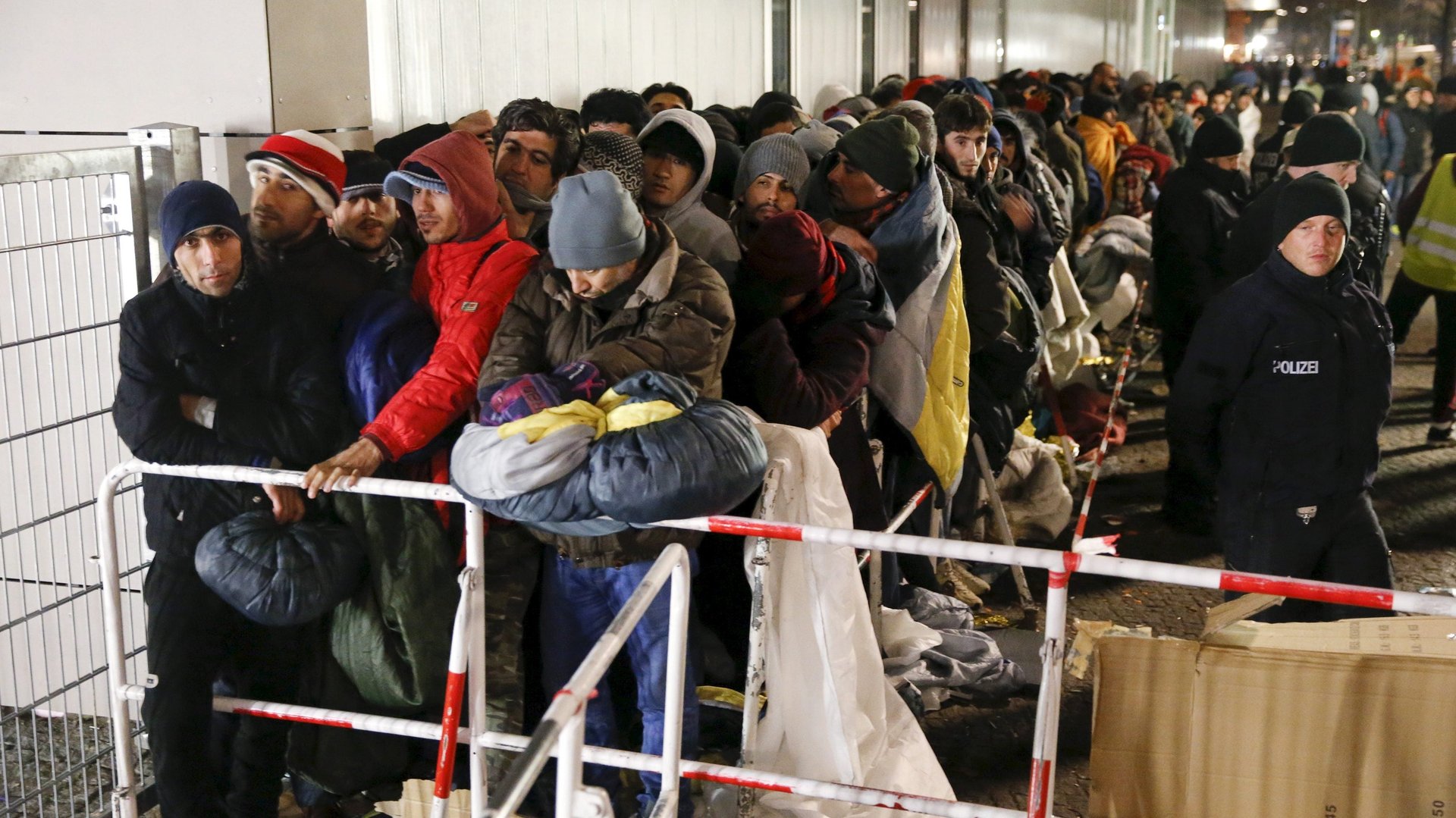Asylum seekers in Germany received nearly $5.9 billion in benefits—almost three times the amount in 2014
Germany’s welfare bill has skyrocketed.


Germany’s welfare bill has skyrocketed.
The number of asylum seekers receiving benefits almost tripled (link in German), jumping 169% from 363,000 in 2014 to 975,000 in 2015. In total, asylum seekers received nearly €5.3 billion ($5.91 billion) in benefits in 2015, according to the Federal Statistics Office.
This is the sixth consecutive year that the number of asylum seekers receiving benefits increased. The benefits help asylum seekers cover basic needs such as housing, food, and medical treatment.
A large portion of the asylum seekers receiving benefits were from two countries—308,021 were from Syria and 114,543 from Afghanistan. They were 67% male and 33% female in 2015. Almost 30% of those entitled to benefits were minors.
Germany took in a just over a million asylum-seekers last year—more than the US has in the past 10 years. With this record influx of refugees, Germany registered its biggest population increase in more than 20 years (+1.2%).
The latest welfare figures will likely benefit the right-wing populist movement gaining traction in Germany. The anti-refugee Alternative für Deutschland won big gains in regional elections last week, beating chancellor Angela Merkel’s party, the Christian Democratic Union, into third place in the Chancellor’s constituency.
While Merkel stood by her immigration policy in the wake of the election results, her government passed reforms to restrict cash benefits to migrants who fail to integrate into German society. Merkel has continued to stress the importance of integrating refugees and getting them into work. She called on refugees to learn German quickly and she plans meet with the heads of Germany’s biggest companies—including Siemens and Volkswagen—to persuade them to hire more refugees.
Around 30,000 refugees have found jobs in the country since spring of 2015, according to Germany’s employment agency, with many of them taking low-skilled jobs as janitors or security guards.